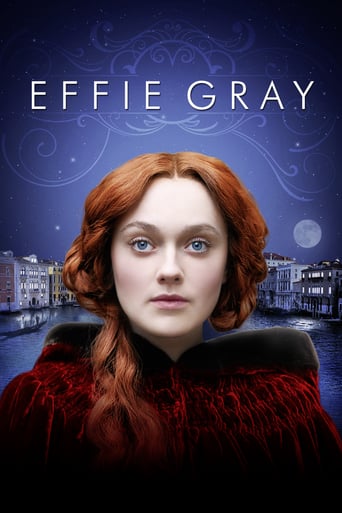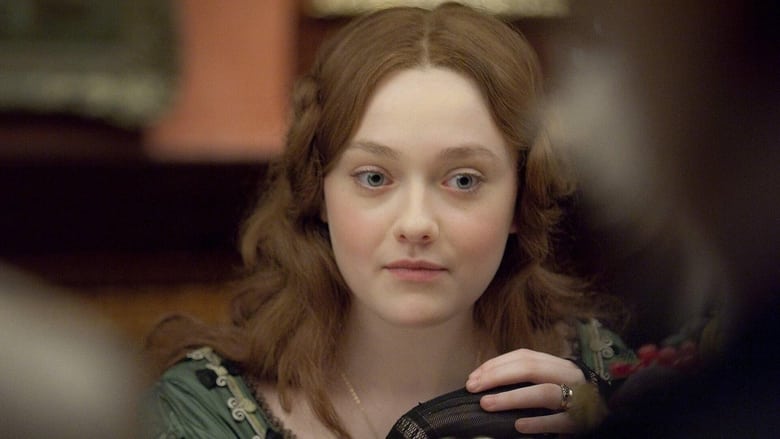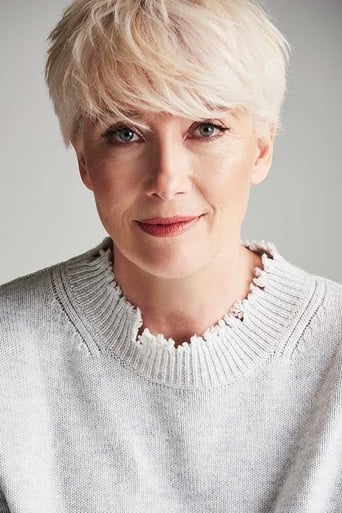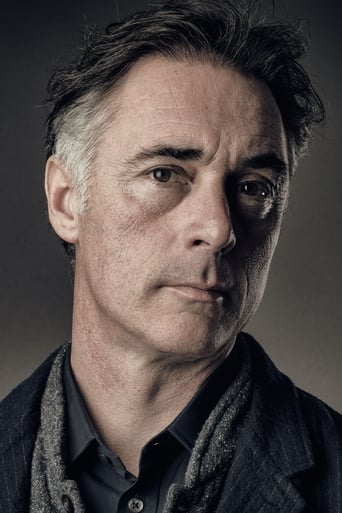Effie Gray (2014)
A look at the mysterious relationship between Victorian art critic John Ruskin and his teenage bride Effie Gray.
Watch Trailer
Cast


Similar titles
Reviews
I love this movie so much
Touches You
This is a tender, generous movie that likes its characters and presents them as real people, full of flaws and strengths.
Let me be very fair here, this is not the best movie in my opinion. But, this movie is fun, it has purpose and is very enjoyable to watch.
Ruskin was a dominating and influential public figure. Driven, dogmatic, intensely serious, argumentative and over time self-contradictory. His great two volume "Stones of Venice" were essential for the bookshelves of Victorians wishing to be seen as cultivated and engaged, with a deep interest in both architectural and religious questions. Ruskin,father of the Gothic Revival,wrote the "Stones of Venice" as a very elaborate and extensive - and tenuous - justification for Gothic as the only true Protestant architectural style comparing the historic governance of Venice with that of England. Ruskins obsessive advocacy spawned the hundreds of churches and dozen of town halls built in the Gothic style in Victorian England. It is possible I think to form something of a picture of Ruskin's character from his writings - and even for high Victorian England it does not bode well for any future marriage partner. Ruskin was much photographed so his appearance is well known. His demeanour could be guessed at. Apart from his voice one might form a fairly detailed picture of him. So close was Greg Wise to my picture of Ruskin, particularly his demeanour that it was quite a startling experience. Effie though was a perfectly normal young woman. Her lover, Millais too was a very normal man. She had the misfortune to marry a very gifted but tightly buttoned up - in a number of senses - man.It does however mean that the interest - because of its oddity - was Ruskin - and his parents, immensely proud their odd offspring. Top portrayals of the parents and notably too, Derek Jacobi as Effie's solicitor. Emma Thompson's screenplay has such fidelity to the manners and mores of the period, the difficulties of speaking about matters then of great delicacy. It is an antidote to the unspeakable screenplay for "Victoria". The normality of Effie and Millais - and the relatively colourless portrayals - made these parts of the film drag. However I only caught the last quarter of the film or less so look forward to seeing it on DVD asap A 7.5A footnote is a recent book which questions Ruskin's impotence as the cause of his problem with Effie (the writer suggests it was money) but as it was Ruskin himself who wrote (to his solicitors) as an uncomfortable admission that the "circumstances" of Effie's body were not such as to inspire (his) passion - it is difficult not to believe this as anything other than the real cause. Nobody knows exactly what he meant but seems decisive.
This movie is a beautiful story about a young woman and her failure to thrive when imprisoned as a house pet.I was surprised to read the negative reviews, but I believe they are written from people who do not accept the idea that women love sex, women want a full marriage, and a woman has a right to her own body. Those are very modern ideas! The women's revolution was a long time coming in this world, and it's far from over. Most of history never allowed her to have a voice. That is just the facts.I loved the way the movie was done and Dakota Fanning was perfect. Emma Thompson was superb, and she wrote it! Well done!
I was looking forward to this film having heard a play on radio about Ruskin and Effie, but didn't know the full story.Unfortunately the opening scenes weren't promising, with some wooden acting from the actress playing Effie (why not cast a British actress? A stilted false accent obviously affected her performance) Also. the actor playing Ruskin has one expression and one tone of voice throughout the film.It doesn't get much better and carries on slowly, dull and boring with slow, boring performances from most of the cast (with the exception of David Suchet).There are a few things unexplained: what was the medicine Ruskin's mother gave Effie that made her sleepy/ ill? And why did she give it? Why did Ruskin senior say to Ruskin, we warned you about that girl yet you married her? Why did the Ruskins seem unhappy at the Eastlakes visit?It actually picks up towards the very end (yes, I kept watching) when Effie confides in Lady Eastlake (a very orange and tanned Ms Thompson - completely wrong look for the time). And things finally move on. This is about 15 minutes before the end. The story should have started here and continued with her next marriage. Apparently the film had a huge budget (spent on what?) and recouped a mere fraction. I'm not surprised. The poor acting and script lets it down. A poor example of British film making.
When most people think about how far women's rights have progressed in western society over the past century or two, they usually think about voting rights, but that just scratches the surface. There has also been much progress under many aspects of law, at the workplace and in the home. I'm talking about the right of a woman to enjoy a happy marriage – free from physical and emotional abuse, and free to enjoy physical intimacy with her husband. Divorce may not have been illegal, in, say, Victorian England, but it was definitely frowned upon – even in the instances I just mentioned.Such was the problem of Euphemia "Effie" Gray. She was a Scottish girl of 19 who married 28-year-old family friend and renowned English art critic John Ruskin in 1848. Ruskin, however, never consummated the marriage and treated her in a manner that she described as "overbearing". After suffering in silence for years, she got support from some influential individuals and succeeded in having her marriage annulled. This meant some degree of social ostracism, but at least she was able to seek out a happy marriage and have a family. Her story has been told in a silent film, a short film, in radio plays, stage plays and an opera, in a short story and in a book, on TV, and now, in the feature-length motion picture "Effie Gray" (PG-13, 1:44).Dakota Fanning plays the title character in the film, written by (and co-starring) Emma Thompson, who has previously won an Oscar for acting and another for screen writing. Fanning plays Effie as full of youthful optimism when we see her leaving rural Scotland for her wedding to John Ruskin (Greg Wise) and her new life in the big city of London. The reality of her situation quickly sets in. Her in-laws don't think Effie is good enough for their son and are afraid that she's in it for the family money and the prestige of being married to a famous art critic. Effie has trouble adjusting to her new role, speaking up when she's expected to be quiet, and humbly trying to help when she is told it is not her place. She's basically expected to be seen and not heard. Effie is not okay with that, but she might have been able to live with it if her husband showed her some respect, or even a little affection.Effie's marriage was in trouble from the very beginning. We see a discretely filmed and heartbreaking scene on Effie's wedding night when Ruskin barely looks at his wife and even leaves his bedroom when she comes to him in girlish innocence and vulnerability. For reasons that are speculated on in the film and by historians to this day, Ruskin never consummates the marriage. This leaves Effie feeling lonely and unwanted, feelings that are compounded when Ruskin treats their contrasting personalities as a problem caused by Effie. The couple drifts apart further during an extended stay in Venice where Ruskin spends his time writing and Effie spends her time socializing and site seeing. We see her slowly sink into depression and even become physically ill. The couple travels to her native Scotland for her health and are joined by up-and-coming painter John Everett Millais (Tom Sturridge), who is there to paint Ruskin's portrait. Living in the same cottage as the couple, Millais sees first-hand what Effie is dealing with and encourages her to leave her husband. When she finally opens up to a concerned society woman, Lady Eastlake (Thompson), she receives the help she needs, but it's not that simple. Effie has some tough decisions to make and a tough road ahead including the prospect of being a social pariah for the rest of her life, with no guarantee that her freedom will actually make her life better."Effie Gray" is a simple, but engaging story. It deepens the understanding of what it was like to be a woman in the 19th century and shows us how far women have come in western society. Some audience members may wish the film showed more of Effie's story, but, contrary to the film's title, Thompson's script isn't as much a biopic as a portrait of one young woman's struggle for her right to be happy. Making a movie with such a narrow focus allows for a certain depth in the plot and the freedom to explore a very small number of issues, but also slows the pace at which the story develops. Thompson has every right to choose to tell Effie's story in this way, as I have the right to feel disappointed at not seeing the dramatic moments of Effie's story that occurred after the movie's script runs out. The film is beautifully shot, nicely-acted and well-written, even if it feels incomplete. "B"



















